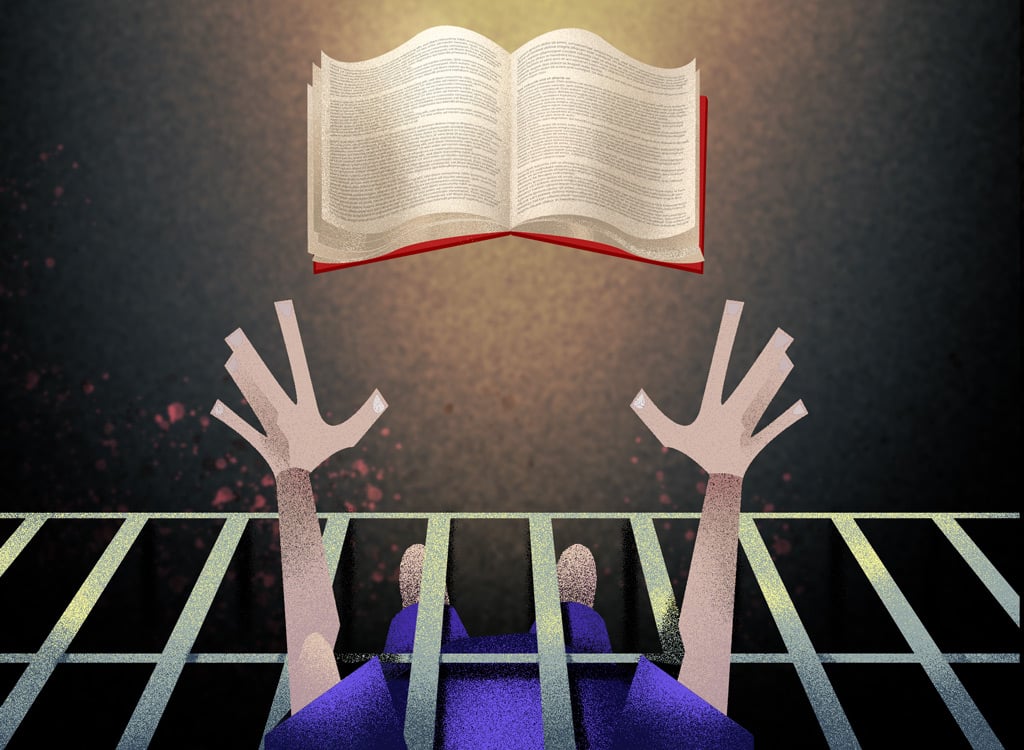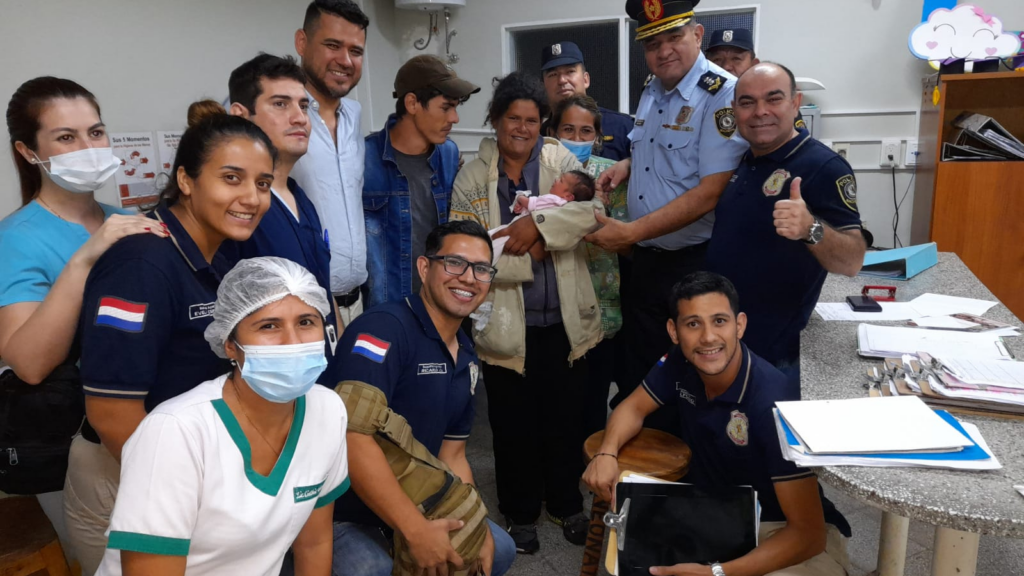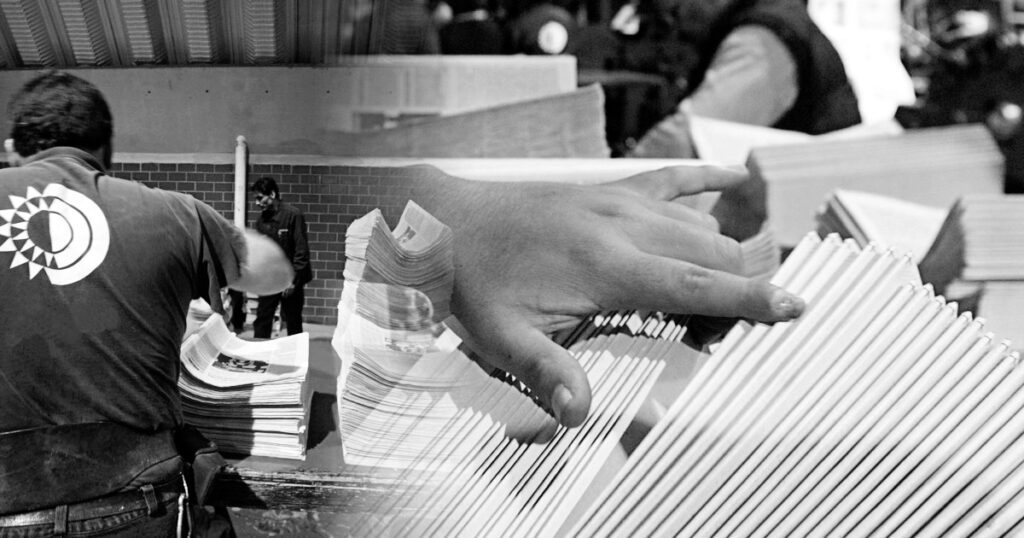For more than a year and a half, former television presenter Berta Valle, 39, has publicly asked the Nicaraguan police authorities to allow her husband, the political prisoner Félix Maradiaga, arbitrarily detained on June 8, 2021, a Bible. .
Maradiaga is imprisoned in the high-security Evaristo Vásquez complex, popularly known as “El Chipote”, in a rural area of the capital that is militarized. So far, the answer Valle has received has been a resounding “no”.
In this prison there are 59 prisoners of conscience, who are not allowed to read or write as is the case with Maradiaga. During the more than 600 days – that the first political prisoners have been in that jail – no prisoner of conscience has had access to books or paper and pencil to write. In addition, other methods of torture are applied, such as isolation and solitary confinement -four political prisoners are confined in solitary isolation cells-, the impediment of the inmates to speak with their defense lawyers, sleep deprivation, constant interrogations, inattention medical care and poor nutrition, which in the case of Maradiaga meant the loss of 60 pounds in the first year of captivity.
These prohibitions, added to the serious abuses of rights, are part of the implementation of a policy of punishing prisoners for political reasons that are comparable to those of Middle Eastern countries characterized by their totalitarianism and others such as Cuba and Venezuela, he confirmed. C.CONFIDENTIAL through consultations with international human rights experts.
“This punitive measure has been applied in various contexts, both temporarily and permanently. It is a problem in many Middle Eastern countries like Egypt. Depriving political detainees of reading (including educational books for students) or writing is quite common in places of detention and without legal basis, it is not part of the prison system, but a practice,” explains Human Rights Watch (HRW). ) to a consultation on this topic.
The prohibition to read and write in El Chipote also violates the United Nations (UN) minimum standards for the treatment of inmates, called “Nelson Mandela rules”in honor of the South African leader who fought against racial segregation in his country and was imprisoned between 1963 and 1990.
Between rule number 58 and 64 of the aforementioned regulations, the right of prisoners under surveillance to communicate with their family and friends through correspondence, telecommunications and receiving visits is established. But it also allows them to get regular information, be it through the radio, newspapers or special publications, together with access to a library with “instructive and recreational” books.

Political prisoner Dora María Téllez, Ortega’s former comrade in arms in the fight against Somoza, finds herself isolated in two ways. He remains in a solitary confinement cell, in the men’s pavilion, condemned to darkness, according to the journalist Carlos Fernando Chamorro in his acceptance speech on November 28, 2022 for the doctorate Honoris Causa, awarded to Téllez by the Sorbonne University New in Paris.
“There is not enough light, not even to distinguish the toothpaste on the toothbrush,” Chamorro said.
According to the rapporteur for Nicaragua of the Inter-American Commission on Human Rights (IACHR), Esmeralda Arosemena de Troitiño, the measures to prohibit reading and writing in the El Chipote prison of the Nicaraguan regime remind him of the Nazi dictator Adolfo Hitler and aim to to ignore the condition of human beings of the detainees.
“What is the objective of a prison rule prohibiting reading, or writing, or receiving a drawing from a child? What is the meaning of that prohibition? From the point of view of human rights, it is a lack of knowledge of the condition of being human. It is that: communicate, have this contact with the outside world”, explained Arosemena de Troitiño, who mentions similar cases in the region such as Venezuela to exemplify human rights abuses.
Objective: cause damage and torture
The American forensic psychiatrist Terry Kupers is a specialist in the subject of solitary confinement and its effects on prisoners, which he has followed in the United States prison system. For him, the goal of measures like this is to cause harm, torture and depression in prisoners.
Kupers explains that prisoners in the United States have access to books. “For the most part, general population inmates are allowed to write materials and their mail is relatively secure, and they are allowed to use the prison library and have a small number of books in their possession,” Kupers says.
The exception is isolation prisons such as the Guantánamo military base in Cuba, an icon of human rights violations denounced by various international organizations. “The ban on pencil and paper, books, and reading materials is practiced primarily in solitary confinement units in the United States,” Kupers explained.
“These punitive measures are applied as a method of torture to inflict more damage on prisoners who are already “in the hole,” said the expert.
Prisons in Venezuela
Alfredo Romero, director of the Penal Forum of Venezuela, reports that in his country there are currently 274 prisoners of conscience. However, those with the greatest restrictions are those in the prison known as El Helicoide, run by the Bolivarian Intelligence Service (SEBIN). There are 59 inmates there.
The other prison is controlled by the Directorate of Military Counterintelligence (DGCIM), where another seven are located. However, in these places Romero accepts that reading bans do not occur constantly, and depend on the humor of the prison director.
In the case of writing, Romero adds that it is of quite restricted use, because political prisoners tend to send notes abroad. For this reason, in the DGCIM it was usual that pencils were not allowed to political prisoners at certain times.
The expert regrets that the world is tired of talking about Nicaragua as it did with Venezuela at the time, given that international denunciation is the one that generates a political cost to those responsible for the abuses.
For Romero, extreme prohibitions seek “one of the great punishments: the confinement of the mind.” He thinks of violations that are committed in China, Belarus, Egypt, but also in other nations such as Saudi Arabia. “Not only is it limited to those on the left, but there are those rhetorically on the right. There are countries that copy, have a similar or learned strategy: Venezuela learned from Cuba and Cuba from Russia, and Nicaragua from Cuba and Venezuela, ”she adds.
Ana Leonor Acosta, director of the Coalition for Human Rights and Democracy, affirmed that this type of complaint was common in Venezuela in 2014, but “some” progress has been made in military prisons as a result of campaigns to denounce organizations. national and international that have incidences in the authorities.
“Isolation and confinement brings a psychological problem: not being able to read, not being able to write, not having sunlight, not having a place to relax in the open air, not having ventilation, brings certain psychological and health aspects that can be considered torture. Acosta said.
“They are using the same methods that Cuba used at the beginning”
The reality of political detainees in Cuba has been similar to the examples cited. Lariza Diversent, director of Cubalex, an organization that denounces abuses on the island, believes that the repression has gone through a process of more than six decades, since the triumph of Fidel Castro in January 1959.
In this sense, they observed how the lack of prison conditions marked the political prisoners in the first years of the dictatorship. “They are using the same methods that Cuba used at the beginning,” Diversent says of the Nicaraguan situation.
The director of CubaLex added that books are allowed in her country and family members bring white sheets, pencils and pens that the guards put in a bag, keep in the Prison and give them when they ask, although she acknowledges that everything changes when they are in isolation.
In other words, there is a selective policy, applied to those deprived of liberty for political reasons. According to the organism Prisoners Defendersin Cuba there are 1,057 people in that condition as of December 2022. If the authorities decide then that a book should not be read, it is taken from the inmates and he cites the novel as an example 1984 of George Orwell, affirms the human rights defender.
Ortega could read in the prisons of Somocism
Daniel Ortega, the fierce repressor of political prisoners, revealed in December 2022 that he could read while he was imprisoned between 1967 and 1974, in the years of Somocism.

On December 23, 2022, in an act to commemorate the 1972 Managua earthquake, he accused current political prisoners of being terrorists and blamed them for an attempted coup.
Thus, he made references to the protests of peaceful demonstrators in 2018, when thousands of citizens took to the streets to demand his resignation. The State’s response was a brutal repression that left hundreds dead, as a result of the joint action of special police troops with paramilitary groups loyal to the ruler.
In his Ortega speech evoked the cruelty of which he was a victim when he was imprisoned during the Somocism, but kept silent about the precarious conditions of today. Despite his silence and the large gaps left in his accounts of those years of Somocism, he accepted that they could introduce books with the help of certain officers, who also notified them when there were surprise searches in the cells and thus avoided being surprised.
In an interview with Playboy magazine in 1987, Ortega admitted that he could write in prison. Behind bars, he began to read the poems of Rosario Murillo, who would become his wife and his partner in dictatorial power decades later.
“I felt very attracted to them (Murillo’s poems), I was attracted to feminine poetry in general. It was a high-quality poetry and I began to write to it. And that’s how we used to exchange poems,” Ortega recounted in that conversation.
Amnesty International: they try to silence
For Erika Guevara Rosas, director of Amnesty International for the Americas, the measures of the Nicaraguan regime seek to silence prisoners of conscience. This constitutes another illegality according to what has been observed since the arbitrary arrests such as that of Maradiaga, carried out five months before the 2021 presidential vote.
“We have been denouncing the conditions in which these people are detained. They have been subjected to the international crime of enforced disappearance at different stages; from the beginning when many of the people detained in the pre-electoral context were subject to disappearance, because for a certain time their whereabouts were unknown and they did not give information to their families,” Guevara Rosas added.
In the midst of the adverse situation in Nicaragua, Berta Valle and Félix Maradiaga have more than 560 days since they have been separated, after 17 years of marriage. She keeps family photos where they enjoy the company of her daughter.
Every morning, when it is 6:30, Berta Valle goes to say her prayers at the desk in her apartment in Florida. She then reads the book of Jeremiah: “For I know the plans I have for you,” says the Lord. Written in the margin, with beautiful calligraphy interpreting the previous passage, she reads a message that seems written for this family: “God’s promises for our lives!”
















